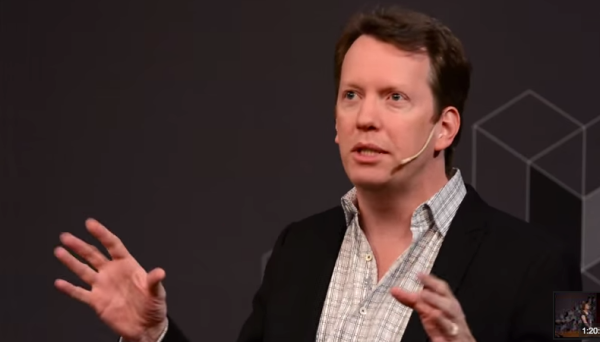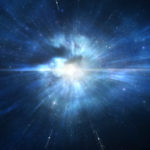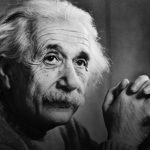Cosmology and Causation: Why Metaphysics Matters
by Dr. Edward Feser
Filed under Cosmology, The Existence of God
Several people have asked me to comment on the remarks about causation made by atheist physicist Sean Carroll during his recent debate with William Lane Craig on the topic of “God and Cosmology.” (You’ll find Craig’s own post-debate remarks here.) It’s only fair to acknowledge at the outset that Carroll cannot justly be accused of the anti-philosophy one finds in recent remarks by physicists Stephen Hawking, Lawrence Krauss, and Neil deGrasse Tyson. Indeed, Carroll has recently criticized these fellow physicists pretty harshly, and made some useful remarks about the role of philosophy vis-à-vis physics in the course of doing so.
It is also only fair to note that, while I have enormous respect for Craig, I don’t myself think that it is a good idea to approach arguments for a First Cause by way of scientific cosmology. I think that muddies the waters by inadvertently reinforcing scientism, blurring the distinction between primary (divine) causality and secondary (natural) causality, and perpetuating the false assumption that arguments for a divine First Cause are essentially arguments for a “god of the gaps.” As I have argued many times, both on my blog and in my published works, the chief arguments of natural theology (i.e. Aristotelian, Neo-Platonic, Thomistic, and other Scholastic arguments) rest on premises derived from metaphysics rather than natural science, and in particular on metaphysical premises that any possible natural science must presuppose. For that reason, they are more certain than anything science itself could in principle ever either support or refute.
Arguments like Aquinas’s Five Ways, when properly understood (as unfortunately, these days, they usually are not), no more stand or fall with the current state of play in scientific cosmology than they stand or fall with current gastroenterology or polymer research. (On this point, see chapter 3 of my book Aquinas, my ACPQ article “Existential Inertia and the Five Ways,” my Midwest Studies in Philosophy article “The New Atheists and the Cosmological Argument,” and many other articles and blog posts. Or see my YouTube lectures “An Aristotelian Proof of the Existence of God” and “Natural Theology Must Be Grounded in the Philosophy of Nature, Not Natural Science.” )
Carroll’s remarks during the debate are largely directed at the question of whether scientific cosmologists should regard theism as a good explanation for the sorts of phenomena they are interested in, given the standard criteria by which models in physics are judged. Since I don’t find that a terribly interesting or important question, I have nothing to say about his criticisms of Craig on that score.
Having said all that, Carroll’s remarks, where they touch on philosophical matters, are pretty shallow, and he does clearly think that what he has to say somehow poses a serious challenge to theism in general, not just theistic arguments grounded in scientific cosmology. So those remarks are worth a response. The key passage concerns Carroll’s criticism of Craig’s claim that “If the universe began to exist, then there is a transcendent cause which brought the universe into existence.” Carroll says:
"The real problem is that these are not the right vocabulary words to be using when we discuss fundamental physics and cosmology. This kind of Aristotelian analysis of causation was cutting edge stuff 2,500 years ago. Today we know better. Our metaphysics must follow our physics. That’s what the word 'metaphysics' means. And in modern physics, you open a quantum field theory textbook or a general relativity textbook, you will not find the words 'transcendent cause' anywhere. What you find are differential equations.
This reflects the fact that the way physics is known to work these days is in terms of patterns, unbreakable rules, laws of nature. Given the world at one point in time, we will tell you what happens next. There is no need for any extra metaphysical baggage, like transcendent causes, on top of that. It’s precisely the wrong way to think about how the fundamental reality works.
The question you should be asking is, 'What is the best model of the universe that science can come up with?' By a model I mean a formal mathematical system that purports to match on to what we observe. So if you want to know whether something is possible in cosmology or physics you ask, 'Can I build a model?'"
Now, it would take a book to explain everything that’s wrong with this passage. And as it happens, I’ve written such a book; it’s called Scholastic Metaphysics: A Contemporary Introduction. Since I’ve already said so much about these issues both in that book and elsewhere, I’m not going to repeat myself at length. Let me just call attention to the key begged questions, missed points, and non sequiturs in Carroll’s remarks.
Carroll tells us that explanation in physics proceeds by way of building a “model” that describes a “mathematical system” reflecting “patterns, unbreakable rules, laws of nature.” Fine and dandy; I’ve pointed this out many times myself. If Carroll’s point were merely that, to the extent that theism can’t be formulated in such mathematical terms, it just isn’t the sort of thing the physicist will deem a useful explanation for the specific sorts of phenomena he’s interested in, then I wouldn’t necessarily have any problem with that. That’s not what classical theism, properly understood, is all about in the first place.
But Carroll goes beyond that. When he says that once you’ve hit upon the best mathematical model, whatever it turns out to be, “there is no need for any extra metaphysical baggage… on top of that,” he evidently means not just that you don’t need anything more for the purposes of physics, specifically, but that you don’t need anything more than that, period. For he says that asking for more is “precisely the wrong way to think about how the fundamental reality works” and that “our metaphysics must follow our physics.”
The idea seems to be that once you’ve answered all the questions in physics, you’ve answered all the questions that can be answered, including all the metaphysical questions. There’s nothing more to be done, not just nothing more for the physicist to do.
Now, why should anyone believe that claim (which is essentially just a version of scientism)? Carroll gives no argument for it at all; he just asserts it with confidence. This is a step down from Alex Rosenberg, who in The Atheist’s Guide to Reality did give an argument for a similar claim -- an argument which, as I noted, is extremely bad, but is at least still an argument.
Nor could there be a good argument for Carroll’s scientism, because scientism is demonstrably false. For one thing, “scientism” is more poorly defined than Carroll claims theism is. However we tighten up our definition of notions like “science,” “physics,” and the like, the resulting scientism is going to be either self-refuting (since it will turn out that scientism cannot itself be established via the methods of physics or any other natural science), or completely trivial (since, to avoid the self-refutation charge, “science,” “physics,” etc. will have to be defined so broadly that even the metaphysical notions Carroll wants to dismiss will count as “scientific”).
For another thing, to suppose that since physics confines itself to mathematical models, it follows that there is nothing more to reality than is captured by such models, is fallaciously to draw a metaphysical conclusion from a mere methodological stipulation. The problem is not just that, if there are features of reality which cannot be captured in terms of a mathematical model, then the methods of physics are guaranteed not to capture them (though that is bad enough). It is that there must in fact be more to reality than is captured by those methods, in part because (as Bertrand Russell noted) physics gives us only structure, and structure presupposes something which has the structure and which a purely structural description will of necessity fail to capture.
I develop these points in detail in Chapter 0 of Scholastic Metaphysics. I also show, in that chapter and throughout the book, that the appeal to “laws of nature” so routinely made by naturalists like Carroll, simply does not and cannot do the work they suppose it does, and papers over a mountain of begged metaphysical questions. In fact the very notion is fraught with philosophical difficulty, as writers like Nancy Cartwright and Stephen Mumford have shown. As I have noted many times, the notion of a “law of nature” was originally (in thinkers like Descartes and Newton) explicitly theological, connoting the decree of a divine lawmaker. Later scientists would regard this as a metaphor, but a metaphor for what? Most contemporary scientists who pontificate about philosophical matters not only do not have an answer but have forgotten the question.
One contemporary scientist who does see the problem is physicist Paul Davies, who, in his essay “Universe from Bit” (in Paul Davies and Niels Henrik Gregersen, eds. Information and the Nature of Reality: From Physics to Metaphysics), writes:
"The orthodox view of the nature of the laws of physics contains a long list of tacitly assumed properties. The laws are regarded, for example, as immutable, eternal, infinitely precise mathematical relationships that transcend the physical universe, and were imprinted on it at the moment of its birth from “outside,” like a maker’s mark, and have remained unchanging ever since… In addition, it is assumed that the physical world is affected by the laws, but the laws are completely impervious to what happens in the universe… It is not hard to discover where this picture of physical laws comes from: it is inherited directly from monotheism, which asserts that a rational being designed the universe according to a set of perfect laws. And the asymmetry between immutable laws and contingent states mirrors the asymmetry between God and nature: the universe depends utterly on God for its existence, whereas God’s existence does not depend on the universe…
Clearly, then, the orthodox concept of laws of physics derives directly from theology. It is remarkable that this view has remained largely unchallenged after 300 years of secular science. Indeed, the “theological model” of the laws of physics is so ingrained in scientific thinking that it is taken for granted. The hidden assumptions behind the concept of physical laws, and their theological provenance, are simply ignored by almost all except historians of science and theologians. From the scientific standpoint, however, this uncritical acceptance of the theological model of laws leaves a lot to be desired…" (pp. 70-1)
Now some atheists may suppose that at this point I am going to exclaim triumphantly that there cannot be law without a lawgiver and proclaim victory for theism. But in fact, like Davies, I don’t accept the theological account of laws. I think it is bad metaphysics and bad theology (insofar as it tends toward occasionalism). I want rather to make the following two points.
First, when scientists like Carroll confidently proclaim that we can explain such-and-such in terms of the laws of physics rather than God, what they are saying, without realizing it, is: “The explanation isn’t God, it’s rather the laws of physics, where ‘law of physics’ originally meant ‘a decree of God’ and where I don’t have any worked-out alternative account of what it means.” Hence the “alternative” explanation, when unpacked, is really either a tacit appeal to God or a non-explanation. In short, either it isn’t alternative, or it’s not an explanation. This stock, naturalistic “alternative explanation” would be quickly dismissed if it were not so routinely and confidently put forward by otherwise highly intelligent, educated, and widely esteemed people.
Second, the original, explicitly theological Cartesian-Newtonian notion of “laws of nature” was intended precisely as a replacement for the Aristotelian-Scholastic metaphysics of nature. The Scholastics held that the regularities in the behavior of natural phenomena derived from their immanent essences or substantial forms, and the directedness-toward-an-end or immanent teleology that followed upon their having those forms. In other words, regularities reflected the formal and final causes of things. The early moderns wanted to get rid of formal and final causes as immanent features of nature, and thus replaced them with the notion of “laws of nature” conceived of as externally imposed divine decrees. To keep talk of “laws of nature” while throwing out God is thus not to offer an alternative to the Aristotelian-Scholastic view at all, but merely to peddle an uncashed metaphor.
So, whereas Carroll glibly asserts that “now we know better” than the Aristotelians did, what is in fact the case is that Carroll and other contemporary naturalists have not only chucked out Aristotelian metaphysics but have also chucked out the early moderns’ initial proposed replacement for Aristotelian metaphysics, and have offered nothing new in its place. This is hardly a problem for the Aristotelian; on the contrary, it is a problem for anyone who wants to dismiss Aristotelian metaphysics.
Like other contemporary Aristotelians, I would say that the right way to interpret a “law of nature” is as a shorthand description of the way a thing tends to operate given its nature or substantial form. That is to say, “laws of nature” actually presuppose, and thus cannot replace, an Aristotelian metaphysics of nature. (Again see the discussion of the metaphysics of laws of nature in Scholastic Metaphysics.) There are other accounts of laws, such as Platonic accounts and Humean accounts, but these are seriously problematic. Platonic accounts, which treat laws of nature as abstract entities in a Platonic heaven, push the problem back a stage. To appeal to such-and-such Platonic laws as an explanation of what happens in the world only raises the further problems of explaining why it is those laws rather than some others that govern the world, and what makes it the case that any laws at all come to be instantiated. Humean accounts, meanwhile, interpret a law as a statement that such-and-such a regularity holds, or would have held under the right conditions. But in that case an appeal to laws doesn’t really explain anything, but only re-describes it in a different jargon.
Consider, in light of these points, what Carroll says about causation later on in the debate:
"Why should we expect that there are causes or explanations or a reason why in the universe in which we live? It’s because the physical world inside of which we’re embedded has two important features. There are unbreakable patterns, laws of physics -- things don’t just happen, they obey the laws -- and there is an arrow of time stretching from the past to the future.
The entropy was lower in the past and increases towards the future. Therefore, when you find some event or state of affairs B today, we can very often trace it back in time to one or a couple of possible predecessor events that we therefore call the cause of that, which leads to B according to the laws of physics. But crucially, both of these features of the universe that allow us to speak the language of causes and effects are completely absent when we talk about the universe as a whole. We don’t think that our universe is part of a bigger ensemble that obeys laws. Even if it’s part of the multiverse, the multiverse is not part of a bigger ensemble that obeys laws. Therefore, nothing gives us the right to demand some kind of external cause."
Now in fact it is Carroll who has said absolutely nothing to establish his right to dismiss the demand for a cause as confidently as he does. For he has simply begged all the important questions and completely missed the point of the main, traditional classical theistic arguments (whether or not he has missed Craig’s point -- again, I’m not addressing that here). One problem here is that, like so many physicists, Carroll has taken what is really just one species of causation (the sort which involves a causal relation between temporally separated events) and identified it with causation as such. But in fact, the Aristotelian argues, event causation is not only not the only kind of causation but is parasitic on substance causation.
Yet put that aside, because the deeper problem is that Carroll supposes that causation is to be explained in terms of laws of nature, whereas the Aristotelian view is that this has things precisely backwards. Since a “law of nature” is just a shorthand description of the ways a thing will operate -- that is to say, what sorts of effects it will tend to have given its nature or substantial form -- the notion of “laws of nature” metaphysically presupposes causation.
Furthermore, what “allows us to speak the language of causes and effects” has nothing essentially to do with tracing series of events backwards in time. Here again Carroll is just begging the question. On the Aristotelian-Scholastic analysis, questions about causation are raised wherever we have potentialities that need actualization, or a thing’s being metaphysically composite and thus in need of a principle that accounts for the composition of its parts, or there being a distinction in a thing between its essence, or nature, on the one and its existence on the other, or a thing’s being contingent.
The universe, however physics and scientific cosmology end up describing it -- even if it turned out to be a universe without a temporal beginning, even if it is a four-dimensional block universe, even if Hawking’s closed universe model turned out to be correct, even if we should really think in terms of a multiverse rather than a single universe -- will, the Aristotelian argues, necessarily exhibit just these features (potentialities needing actualization, composition, contingency, etc.). And thus it will, as a matter of metaphysical necessity, require a cause outside it. And only that which is pure actuality devoid of potentiality, only what is utterly simple or non-composite, only something whose essence or nature just is existence itself, only what is therefore in no way contingent but utterly necessary -- only that, the classical theist maintains, could in principle be the ultimate terminus of explanation, whatever the specific scientific details turn out to be.
Carroll has not only failed to answer these sorts of arguments (which, again, I’ve only alluded to here -- see the various sources cited above for detailed defense). He doesn’t even seem to be aware that this is where the issues really lie, and that they have nothing essentially to do with scientific cosmology. That’s not entirely his fault. As I have indicated, in my view too many people (and not just Craig) put way too much emphasis on scientific cosmology where the debate between theism and atheism is concerned. That just opens the door to objections like Carroll’s, since it makes it sound (wrongly, but understandably) like theism as such is essentially in competition with the sorts of models Carroll pits against Craig.
Related Posts
Note: Our goal is to cultivate serious and respectful dialogue. While it's OK to disagree—even encouraged!—any snarky, offensive, or off-topic comments will be deleted. Before commenting please read the Commenting Rules and Tips. If you're having trouble commenting, read the Commenting Instructions.













